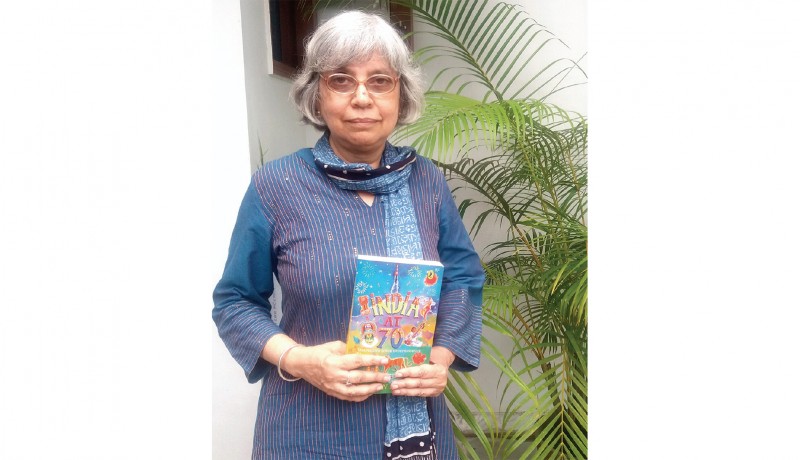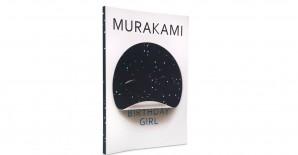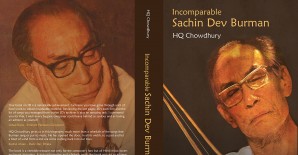
Etcetera

In a span of two decades, Roshen Dalal has attained renown for her painstakingly researched books on history and religions in India. The Puffin History of India and The Puffin History of the World, each in two volumes, have not just received critical acclaim but are bestsellers as well. Her other books include The Religions of India: A Concise Guide to Nine Major Faiths; Hinduism: An Alphabetical Guide; The Vedas: An Introduction to Hinduism’s Sacred Texts and The Compact Timeline History of the World. Dalal’s latest, India at 70, Snapshots Since Independence, published by Penguin Random House, is a meticulously researched account of India’s evolution in the past seven decades with glimpses of the country’s rich and varied culture. Besides highlighting epoch-making events and developments in numerous fields such as politics, culture, science, atomic energy, sports, literature, music, television and industry, it also features in-depth profiles of eminent personalities.
With a master’s degree in ancient history, Dalal is an alumna of Jawaharlal Nehru University (JNU). She lived in Delhi for much of her professional career and moved to Dehradun in 2013 after the death of her mother, renowned author Nergis Dalal. Currently, the author, who loves the solitude Dehradun has to offer, is awaiting the publication of her first work of fiction. The first of a series (to be published by Speaking Tiger), it will examine aspects of religion and philosophy in the context of a fictional story. In an exclusive interview, Dalal talks to Raj Kanwar about her interest in philosophy, ancient wisdom, and animals.
How did you venture into writing on religions and ancient civilisations?
I have always had a deep interest in religion and philosophy; in fact, my interest in these topics is one of the reasons I decided to study ancient history. Though I am not an expert, I have a fair knowledge of Sanskrit, which was a compulsory subject in the ancient history course at JNU. Before writing anything, I read the Sanskrit text along with translations for a complete understanding. While writing my thesis, I had consulted a number of original Sanskrit texts, including the 18 volumes of the critical edition of The Mahabharata in Sanskrit.
How long did it take for you to write your latest book, India at 70? What were your main sources?
It took about a year to write this book, but I had read and researched some of the material earlier. The focus of the book is culture, and it is a companion volume to The Puffin History of India, Volume 2, which deals with the political and historical aspects of India after Independence in some detail. I had been reading on literature, particularly regional literature, for a long time, mainly through the publications of the Sahitya Akademi, and this came in useful while writing the book.
In what ways is this book different from your other books on Indian history?
This book looks at history from a different perspective. It brings cinema, art, literature, ecology, wildlife and sport into the mainstream of history. This book could form the base for many interesting discussions; for instance, on how society and cinema are interlinked, or the role sports play in our lives.
What kind of topics have you incorporated in the book?
The topics are vast and varied. There are musicians such as Ravi Shankar and his little-known first wife Annapurna Devi. Artists include M F Husain and Krishen Khanna. There is also focus on how various cultural forms have evolved and changed and how new forms and media are replacing the old. Instead of a narrow focus on political history, the book reflects India in all its aspects.
Given that all your books are well-researched, what has been the greatest challenge?
Researching for The Vedas: An Introduction to Hinduism’s Sacred Texts posed the greatest challenge as the topic is almost political. I wanted to go into these texts again without being influenced by the works of other historians. I read hundreds of books, examined different theories, and felt that most of the theories were not well-founded and merely based on speculation. Finally, I reached my own, somewhat open-ended, conclusions, based on a deep study of these and related texts.
From where do you derive the stoic disposition that enables you to focus on your long and uninterrupted writing routine without distraction?
This has been my nature right from childhood. I get lost in the world of books, ideas and thoughts.
How did you get your first book published?
In 1988, I decided to teach at Rishi Valley School. This decision was prompted by my interest in the philosophy of J Krishnamurti. I taught history and geography at the school. At that time, I gained an understanding of what could interest youngsters, and the type of books they would prefer to read. I found there were no history books that students of class 7 or 8 wanted to read. My first book, now called The Puffin History of India, Volume 1, was written keeping them in mind. I approached Penguin with an idea for the book. They asked for some sample chapters and then gave me a contract. Later, my editors at Penguin encouraged me to write more books.
Which of the books has given you the greatest satisfaction?
Each book is unique and special to me, but I think Hinduism: An Alphabetical Guide was the one I enjoyed the most. It differs from other books on the subject as it looks at regional language texts in detail.
Which of your books is the biggest seller?
The Puffin History of India, Volume 1, which was first published in 1997, is still the book that sells the most.
Does your writing give you enough returns for a comfortable living?
I love writing but currently the royalties from my books are insufficient. I supplement them with some other writing or editing. I had also worked for many years as an editor.
What are you currently working on?
I am completing a book on the 108 Upanishads. The first draft is ready, but I want to make it simple enough for everyone to comprehend. I don’t think our sacred texts, containing the highest philosophy, are well known. I don’t hear people talking or debating about Brahman, the source of all that exists, and according to these texts, the only reality, the one without a second. If we agree with this concept, put forward by the greatest philosophers and scholars of the past, there would be no divisions in society.
How do you relax amid all the serious writing?
Reading and playing online chess are my ways of relaxing. At one time, I was a good chess player and had even won some tournaments. My last win was at the Delhi Women’s Chess Championship in 1981. After that, I gave up competitive chess as I had a full-time job, but I continued to play chess whenever I had the opportunity. I also care deeply about animals and spend time with them. Currently I have six cats and a dog—all rescued.
Photo: Amit Sharma Featured in Harmony — Celebrate Age Magazine December 2017
you may also like to read
-
Cracking the longevity code
Small yet impactful choices can be game-changers, writes Srirekha Pillai At 102, there’s no stopping Chandigarh-based Man Kaur, the world’s….
-
Home, not alone
While a regulatory framework is vital for senior-care facilities, the need of the hour is to develop an ecosystem to….
-
Birthday Girl
Published in a special edition to honour Japanese master storyteller Haruki Murakami’s 70th birthday, Birthday Girl (Penguin; Rs 100; 42….
-
A huge treat for music lovers
Published as the revised and updated second edition, Incomparable Sachin Dev Burman (Blue Pencil; Rs. 599; 470 pages) the authoritative….







